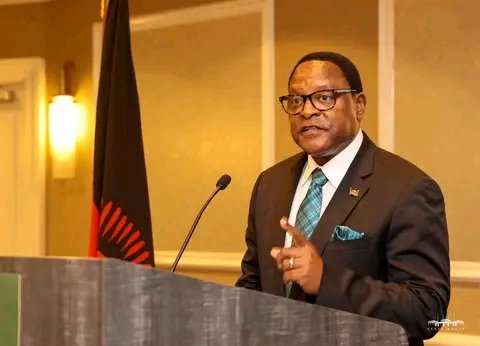By Cedric Nkungula
President Dr. Lazarus McCarthy Chakwera led administration has finally reached a staff – level agreement with International Monetary Fund (IMF) on a new Extended Credit Facility (ECF) Programme which was suspended years ago, due to economic mismanagement by the former ruling Democratic Progressive Party (DPP) regime.
The new four – year programme worth $174 million subject to IMF board approval in mid – November, 2023, follows the Second (and last) review of the Staff Monitored Program with Executive Board Involvement (PMB).

President Chakwera is leaving no stone unturned in his efforts to build the country’s ailing economy which was mercilessly plundered by DPP.
In a statement on Wednesday, IMF says building on the track record under the PMB, the proposed ECF-arrangement will support the Chakwera government’s ongoing efforts to restore a stable and sustainable macroeconomic position consistent with strong and durable poverty reduction and growth envisaged under Malawi 2063.
The statement explains that securing debt restructuring with bilateral official and external commercial creditors will be key to restore medium – term debt sustainability.
“The IMF team has reached a staff-level agreement on the Second (and last) Review of Malawis Staff Monitored Program with Executive Board Involvement (PMB) and macroeconomic and financial policies and reforms to be supported by an ECF arrangement. Access under the arrangement could be up to SDR 131.86 million (about $174.00 million, representing 95 percent of Malawis IMF quota) over a period of four years. The arrangement is expected to catalyze grant financing. The staff-level agreement is subject to IMF Management and Executive Board approval and receipt of the necessary financing assurances by Malawi’s partners and creditors,” says the statement.
“Malawi is recovering from a series of shocks, including an outbreak of cholera and cyclone Freddy. Real GDP growth is projected to increase to 1.6 percent in 2023, with shortages of foreign exchange still weighing on economic activity. Inflation is expected to average 30.3 percent in 2023 and to decline to around 7 percent in the medium – term.
“The authorities stepped up efforts to meet fiscal targets under the PMB, adjusting expenditure to offset a shortfall in revenue, and containing government borrowing to slow money growth. The Reserve Bank of Malawi (RBM) tightened the monetary policy to contain inflationary pressures and resumed foreign exchange auctions. Rebuilding foreign reserves of the RBM has been slow as access to trade credit remains limited since the beginning of the year.
“The authorities continue to pursue good faith negotiations with commercial and official bilateral creditors and are in arrears on commercial debt while these discussions continue.
The prospective ECF – supported program will aim at restoring macroeconomic stability, building a foundation for inclusive and sustainable growth, addressing weaknesses in governance and institutions, and strengthening resilience to climate-related shocks. Fiscal policy will aim at achieving a debt-stabilizing primary balance in the medium-term through a package of expenditure adjustment and revenue mobilization measures. The authorities are committed to applying fiscal discipline, containing domestic borrowing, and improving public financial management.
“Monetary policy will remain anchored on containing money growth. It will aim to tame inflation by ensuring positive real interest rates. The banking system remains stable though exposure to government securities needs to be closely monitored. External sector policies will focus on rebuilding official international reserves and facilitating a market-determined exchange rate. The authorities are committed to ramp up their efforts to improve data quality and timely submission of the data to the IMF staff.


